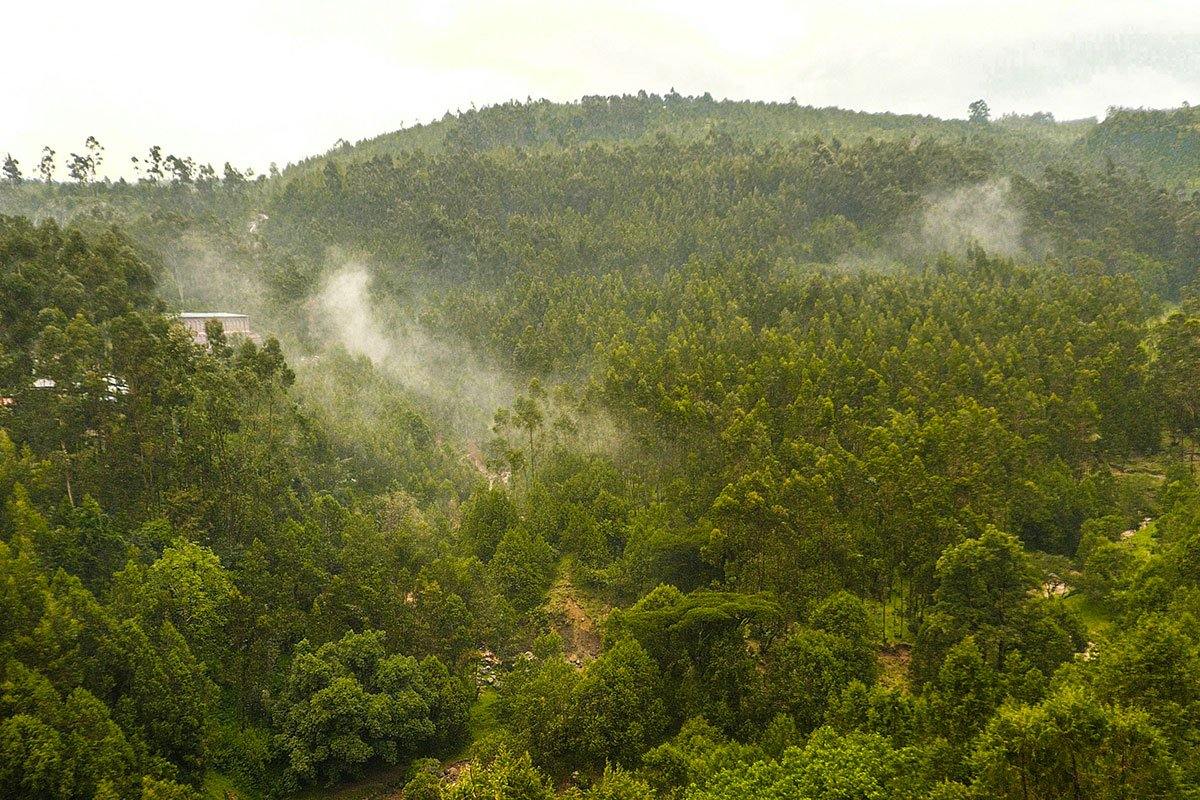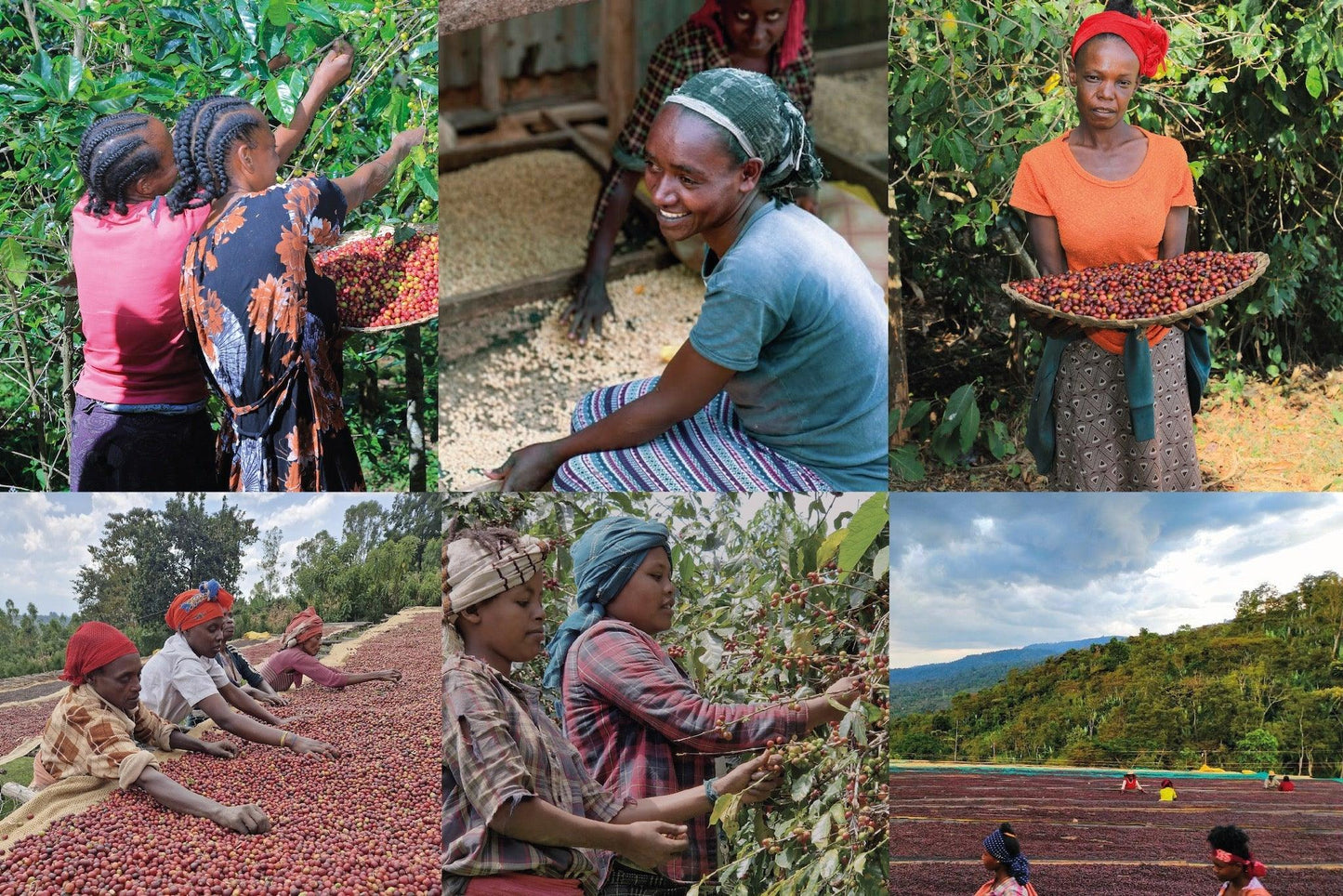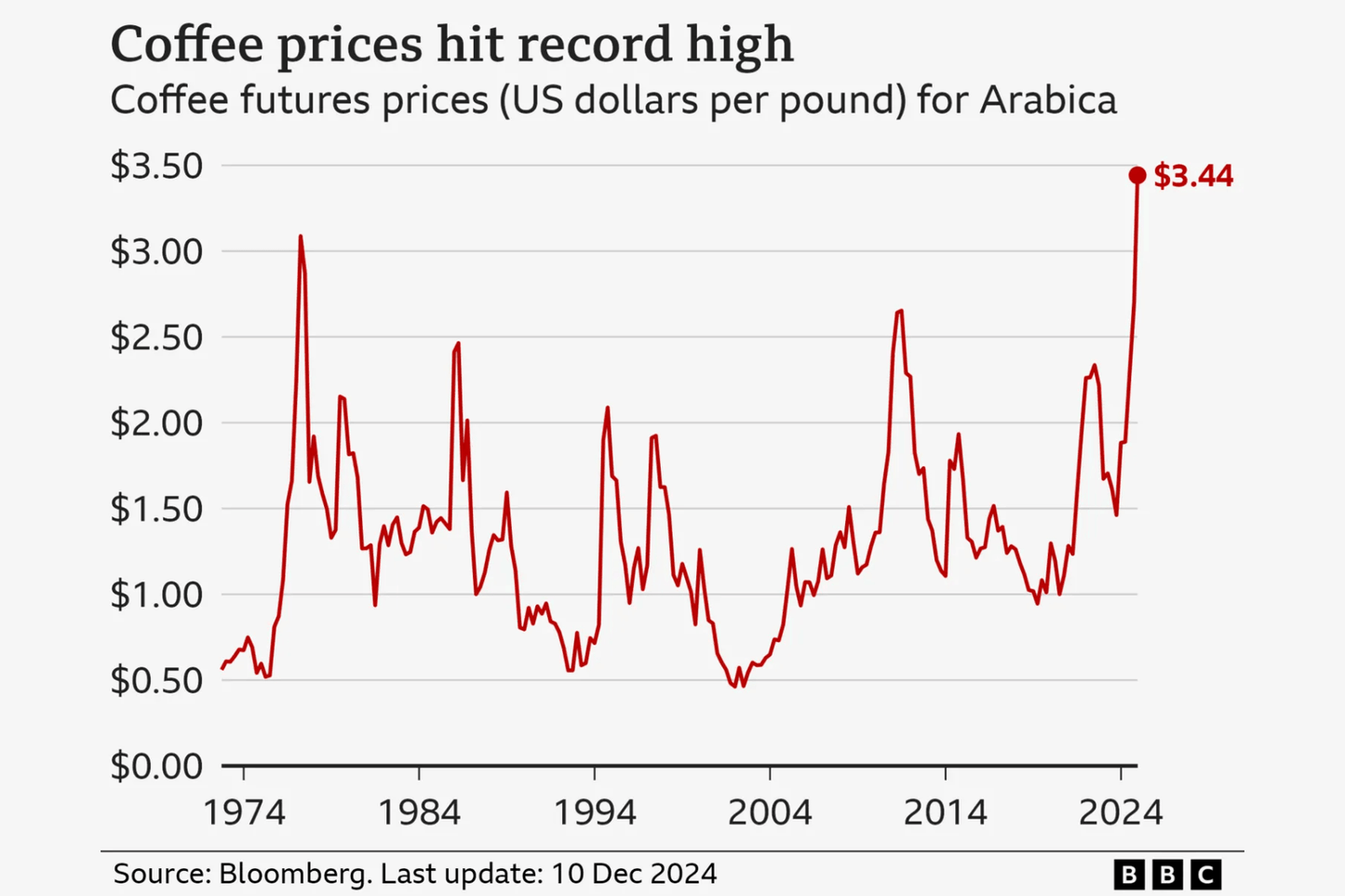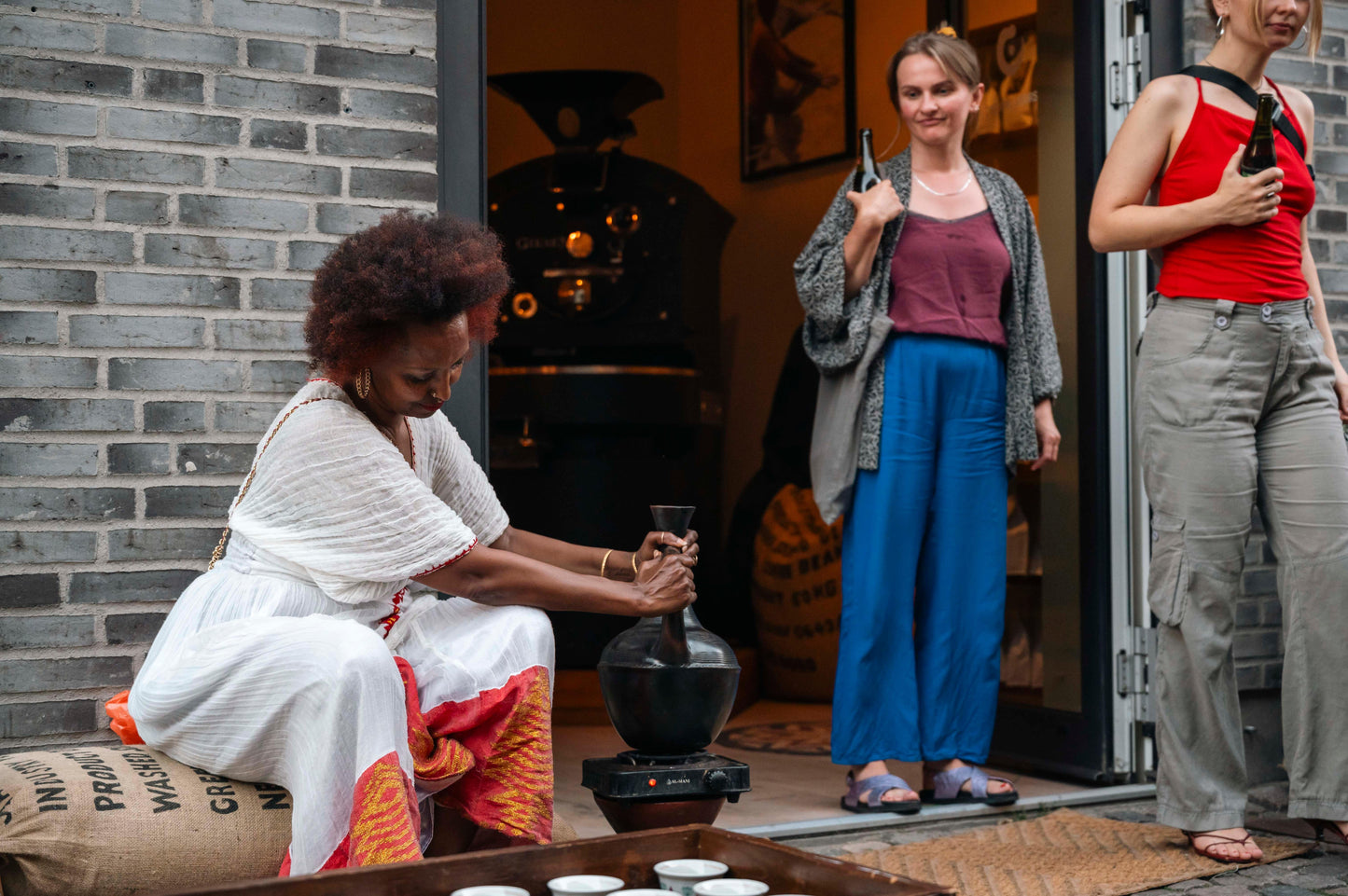Ethiopia is known for being the birthplace of Arabica coffee, a sacred land for its broad diversity of coffee flavors and origins. Among the well-known Yirgacheffe, Sidamo, or Harar, lies one well-guarded secret of locals and connoisseurs: Kaffa coffee. Described as one of the finest coffees in the world, yet not much information shows up after a quick google search. Thus, we compiled all you need to know about this unique origin: Kaffa coffee will no longer have any secrets for you.
Everything there is to know about Kaffa Forest coffee
Kaffa coffee is named after the region it comes from, Kaffa, located in south-west Ethiopia. It is also the birthplace of the Arabica plant, mother to all other Arabica coffee plants. Not cultivated nor maintained, the coffee grows wild in the middle of deep forests, between 1,400 to 2,100 meters above sea level. Kaffa is thus a forest coffee but can also be found as a semi-forest coffee – meaning people trim the trees and thin the canopy on the edges of the forests to boost the plant's growth. Another specificity of Kaffa coffee is its natural protection against diseases, especially the fungus that is devastating coffee plantations in Latin America and other parts of the world. The reason for this is the wide varieties of coffee plants in the Ethiopian forests: it is estimated that the country has 99,8% of the genetic diversity of Arabica. We’ll explain later why it matters.
The cloud forests of the Kaffa region, behind this unique coffee
Nowadays, few coffees are grown in forests, let alone wild. In Ethiopia, coffee is mostly cultivated by small farmers in backyard coffee gardens. To understand the specificity of Kaffa coffee, it is important to take a look at the cloud forests it grows in. The coffee forests, besides being the heart of coffee’s birthplace, are managed under a set of strict rules concerning the harvesting of beans, part of what is called “the participatory forest management (PFM)”. In short, the government gives local communities rights to exploit the forest’s resources, such as spices and wild coffee. In return, they have to manage the forest by electing “forest management groups” that will monitor access to the forest and prevent deforestation. Conservation of the wild forests is a huge issue. They are essential for the environment: Ethiopian cloud forests can store up to 600 000 tons of carbon dioxide a year and are home to many endemic species. Part of the Kaffa forest became UNESCO’s Kaffa Biosphere Reserve in 2010. More protection came for the forest, creating zones with specific rules and activities patrolled by 30 rangers.

But why is this relevant for the coffee industry?
Ethiopia is one of the few places on Earth where Arabica still exists in its wild form and a wide range of genetic diversity. This genetic diversity is crucial for the coffee industry because it can help battle diseases such as the fungus, also known as “Coffee rust,” in Latin America. It attacks the leaves of coffee plants, which causes the beans to fall before maturity and a decrease in the beans' quality. Indeed, commercially grown coffees are usually sensitive to diseases because they come from a small range of coffee plants – estimated to 10% of the diversity found in the wild. Growing genetically diverse plants could help put a stop to diseases. The wild Arabica plants growing in the forests cloud could thus be part of the solution to preserve the coffee industry. Moreover, research has shown that places, where wild coffee grows will decrease by 65 percent by 2080 in the best-case scenario. The worst one predicts a decrease of wild Arabica plant population from 40 to 99 percent. Arabica is also very sensitive to temperature changes. It grows best at an average temperature of 18°–22°C. Forests are essential because they provide the ideal conditions for coffee growing, primarily by reducing daytime temperatures and keeping humidity. But the rising temperatures and changing weather patterns have been affecting coffee growing and will keep doing so in the future, study shows. Preserving the forest isn’t only an environmental issue: the coffee industry's whole future is at stake there. One cause of deforestation in Ethiopia is poverty. To counter this, projects centered on tourism and reforestation are led by locals, hoping that tourists visiting the cloud forests will also buy the coffee from the local producers. This could be one key to saving the cloud forests and the local coffee industry.
Coffee farms to save Kaffa’s cloud forests
Another solution to preserve the forest while developing a sustainable coffee industry is coffee farms. In the Kaffa Biosphere Reserve, farmers cultivate coffee plants grown chemical-free, with eco-friendly practices such as manual slashing. This gives high-quality, single-origin coffee beans, benefitting from the soil characteristics and shading of the canopies. Shade-growing is vital as trees are essential for the forest’s biodiversity, especially birds, that help keep insect pests at bay in return. These coffee farms also contribute to developing the local economy. They aim to attract tourists and turn Kaffa into a touristic destination. Farmers, including women, can earn a living while supporting sustainable practices in the coffee industry. It is all the more crucial when around 15 million Ethiopians earn an income from coffee growing. Supporting these projects is one solution for the preservation of the Ethiopian wild forests, as well as working towards a sustainable coffee industry. That is why Impact Roasters chose to buy its Kaffa Forest coffee beans from women farmers in the region: to contribute to sustainable and eco-friendly coffee production while helping the development of local communities. Our women farmers’ companies also support local projects such as the construction of roads, school, and gives training on gender equality and high-quality coffee production. You can also help support these projects by buying our Kaffa Forest Coffee here.








